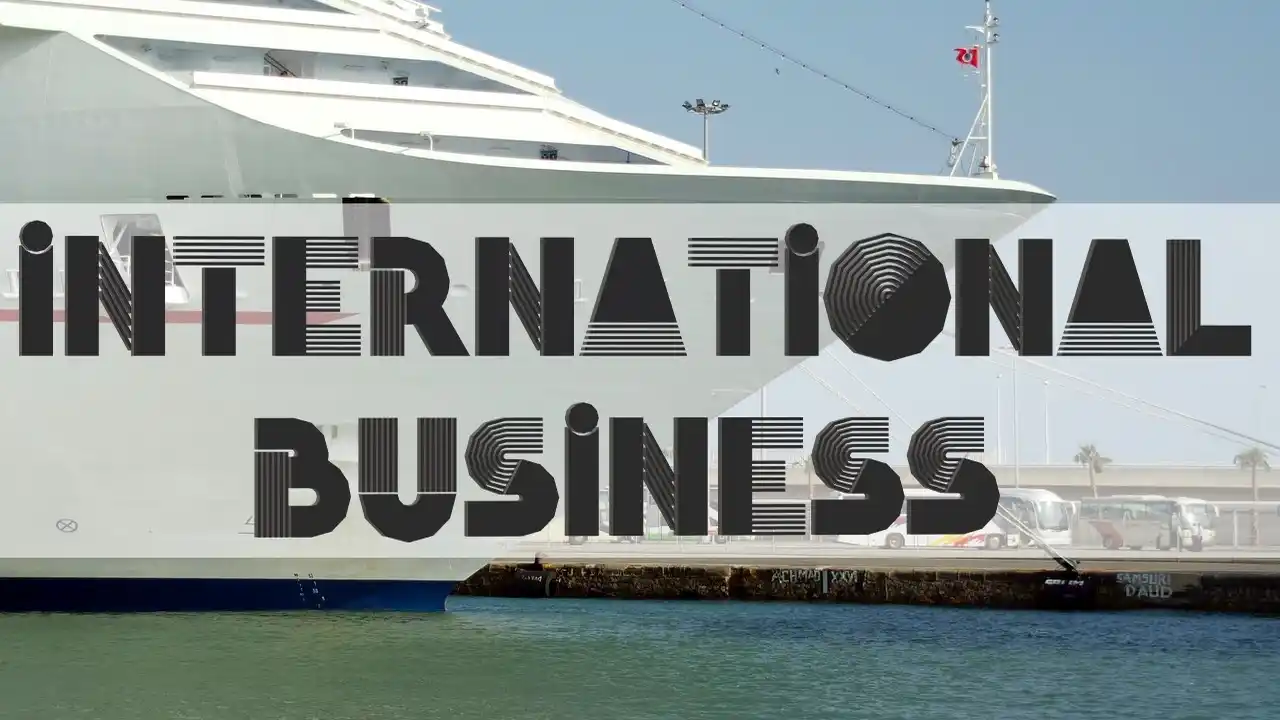There are numerous advantages to conducting business across international borders. However, there are some Risks involved. International trade poses risks and challenges, making business growth and profitability difficult for companies. These include national conflicts and the constant transformation of the world’s political, economic, and legal systems.Even though the definition of business risk varies depending on the circumstances, the basic concept is that there is a possibility that the business will perform less well than anticipated or that expected returns will drop significantly. Check out these risk of international business to enhance your knowledge.
Uncertainty regarding the likelihood of undesirable outcomes, such as loss, damage, changes in foreign exchange rates, changes in interest rates, etc., constitutes risk. Risk can lead to negative outcomes. Every CEO is a risk-averse individual, which means that they frequently avoid putting their companies in unnecessary peril. Therefore, one of his primary concerns is enhancing his possibilities of making money and becoming wealthy. He enjoys his position as a hedger.
Top 12 – Risk of International Business
Preventing hazards is crucial to safeguard the company’s operations and minimize potential problems. Here is a list of some of the risks that businesses encounter when engaging in international trade, as well as effective strategies for mitigating them. risk of international business will be covered in-depth in this article, along with various examples for your convenience.
Political Risk
The political climate of a country may have a significant impact on the success of your enterprise there. Political risk occurs when a country’s government makes unexpected alterations to its policies. This threat could harm the company. For instance, the government of a nation may decide to alter its foreign trade strategy by erecting trade barriers. This can make it more difficult for the country to conduct business with foreign companies.
Some governments impose tariffs and quotas on imports from other nations to protect their domestic industries from foreign competition. Companies that sell their commodities to countries with trade barriers are making less money and generating less profit as a result of the increase in export taxes. Therefore, the rules and policies of other governments can have a significant impact on the profits of a global company.
Cross-cultural Risk
When we say “cross-cultural risk,” we are referring to a cultural error that threatens some human value. This could be an occurrence or a circumstance. Differences in language, manner of life, mentalities, habits, traditions, and/or traditions, as well as religious practices, can contribute to cross-cultural risks.
There is a strong connection between the preservation of traditional values and their transmission from generation to generation. These concepts influence how employees think and work, as well as how consumers choose what to purchase. Customers on international markets differ greatly from those on domestic markets.
Language plays an important role in defining a culture. Language is not only a means of communication; it also reveals how others view life and what they value. In Eskimo languages, for instance, “snow” has multiple meanings, whereas the Aztecs of South America used the same fundamental word stem to refer to snow, ice, and cold. When translating from one language to another, it is often difficult to locate words with the same meaning in the target language.
For example, there is no single term in multiple languages that describes the sensation of having a taste linger in the mouth. These obstacles make communication more difficult and contribute to confusion. If individuals from different cultures cannot communicate effectively, it can result in ineffective business strategies and broken client relationships.
Ethics Risks
Always act honestly when selling a product or providing a service on a global market. When companies conduct global business, their fundamental principles and objectives may be called into question at any time.
Different countries have different social norms and customs, so it is essential to exercise extra caution when traveling abroad. You must ensure that your international business associates and sellers adhere to the rules and standards you establish, regardless of where they conduct business.
Financial Risk
On the currency market, corporations may choose to protect a portion of their foreign investments by purchasing currency forwards, options, or futures.
This can help them reduce the financial risk they face when conducting international commerce. Hedging protects companies’ revenue and ROI by mitigating potential losses from adverse price changes in financial assets.
Commercial Risk
In international business, “commercial risk” refers to the possibility that a company will fail due to inadequate business strategies and practices. Among the primary causes could be making poor choices when selecting business associates, beginning business projects without sufficient planning, or misinterpreting business transactions due to cultural or linguistic differences.
Even though there are more commercial risks in domestic markets, the financial repercussions of these errors are greater for businesses situated in foreign nations. If you lack knowledge of local markets, you could lose a lot of money when conducting international business. It results in poor pricing and promotion strategies, the wrong market launch date, and product qualities that do not meet the requirements of the buyer’s target market.
In the worst instance of commercial risk in a foreign business, companies may select unsuitable business associates who do not share their vision and objectives. This would be the worst possible outcome. When a company makes such poor decisions, expenses rise. Regulations protect local businesses, making it harder and pricier to break ties with foreign partners.
Country Risk
Country risk, also known as political risk, is the possibility that changes in the political, legal, and economic environment of a foreign nation will have a negative impact on a company’s operations and profits. This risk is sometimes referred to as a “political risk.”
In business, “country risk” refers to the possibility that a foreign authority will attempt to interfere with a company’s operations. Governments can, for instance, make it difficult for businesses to enter certain markets, add a great deal of red tape to business transactions, and restrict the amount of money businesses can bring back from operations in foreign countries.
The degree of government involvement with a nation’s private businesses varies greatly from nation to nation. For instance, both Singapore and Ireland have a relatively liberal economic climate due to their substantial economic freedom. On the other hand, both the Chinese and Russian governments frequently attempt to regulate the operations of private enterprises.
Laws and regulations that could hinder the operations and success of a business also constitute country risk. Important legal considerations include protecting intellectual property and property rights, as well as product liability and tax regulations. Additionally detrimental to a nation’s economy are high inflation, a large national debt, and unfair international trade. This is the risk of international business.
Risk to Intellectual Property
There is a risk that others will use your intellectual property (IP) without your permission when conducting business globally. Therefore, intellectual property risk endanger both your intellectual capital and financial performance. It also has a direct impact on the value of the products and services your business sells.
Because it can be difficult to secure business rights from a distance, intellectual property issues can exacerbate a foreign company’s problems. Therefore, individuals who conduct business with other nations must be aware of intellectual property offenses such as copyright infringement, patent infringement, brand fraud, and theft of trade secrets.
International Business Protection
Compared to other categories of businesses, the income of firms that deal with foreign finance is significantly more volatile. When income is unpredictable and inconsistent, it can be difficult to operate a business effectively.
Despite these potential obstacles, conducting business on a global scale can save you money on resources and provide access to larger, more lucrative markets. A business may be able to circumvent some of these risks by employing one of the numerous available strategies.
Prepare for Global Economic Crises
Global financial catastrophes can harm nearly all businesses, regardless of their location. Nations with high debt and poor infrastructure are most vulnerable to crises; businesses should choose secure locations abroad.
During a crisis, it can be extremely beneficial for a business to be located in an area where the government offers incentives and stimuli. Although this method does not eliminate the possibility of a global economic collapse, it does reduce its likelihood
Shipping Risks
You may encounter contamination, seizure, accident, vandalism, theft, loss, or damage regardless of whether you are shipping items across the country or around the world. Ensure you have adequate insurance coverage before shipping anything to a customer.
The foreign Chamber of Commerce has established the roles and responsibilities of all parties involved in international commerce with regard to shipping risk. Everyone would benefit from reading the instructions and taking the necessary safety precautions.
Regulatory Risk
Changes in a country’s laws and regulations that occur suddenly can impact both global markets and specific economic sectors. This is the definition of “regulatory risk” in the context of international commerce. When conducting business with foreign companies, domestic businesses are required by law to adhere to the regulations established by regulatory bodies.
Changes made by a country’s government or another regulatory authority can make it more difficult to attract foreign investment, increase operating expenses, alter how competition operates in a sector, or even cause business models to fail entirely. The ability of governments to compel businesses operating within their borders to comply with the law is a clear indication that regulatory concerns cannot be eliminated entirely.
Foreign Currency Risk
Changes in the value of a property due to fluctuations in the value of various currencies constitute foreign exchange risk. Currency risk is also known as exchange rate risk and foreign exchange risk. It is a decrease in the value of an asset due to fluctuations in the relative values of the currencies involved.
The risk of fluctuating exchange rates is one of the most significant and common aspects of conducting international business. It occurs when a company employs a foreign currency in a financial transaction. Currency fluctuations greatly influence global transactions, affecting monetary flow, regardless of whether it’s domestic or foreign currency. Due to the constant fluctuation of exchange rates, it can be challenging to protect your business from this risk.
FAQ
What Effect does Risk have on Organizations?
Risk is by far the greatest source of uncertainty in any enterprise. As a result, companies are placing a greater emphasis on identifying potential hazards and developing plans to mitigate them before they cause harm to the business. Future businesses skilled in risk management will make confident and sound business decisions.
What are the Country’s Foreign Trade Risks?
In international commerce and business, “country risk” refers to the uncertainty associated with investing in a foreign country and the extent to which this uncertainty could result in a financial loss for the company. Multiple factors, such as political and economic stresses, can contribute to a country’s vulnerabilities.
What is the most Risky Foreign Business Venture?
Foreign exchange and political hazards are two of the greatest risks companies face when conducting international business. Foreign exchange risk is the risk that a currency’s value will fluctuate. This risk is frequently associated with an increase in the value of one country’s currency relative to another.
Final Words
The decision regarding how to divide threats into distinct components and then evaluate them. The majority of the time, the evaluation criteria will be influenced by the financial analyst’s personality and viewpoints. The risk analysis examines all available options so that corporate management can make an informed decision. Continue reading to become an expert on risk of international business and learn everything you should know about it. For a better comprehension of goals of international business, read more about it.






